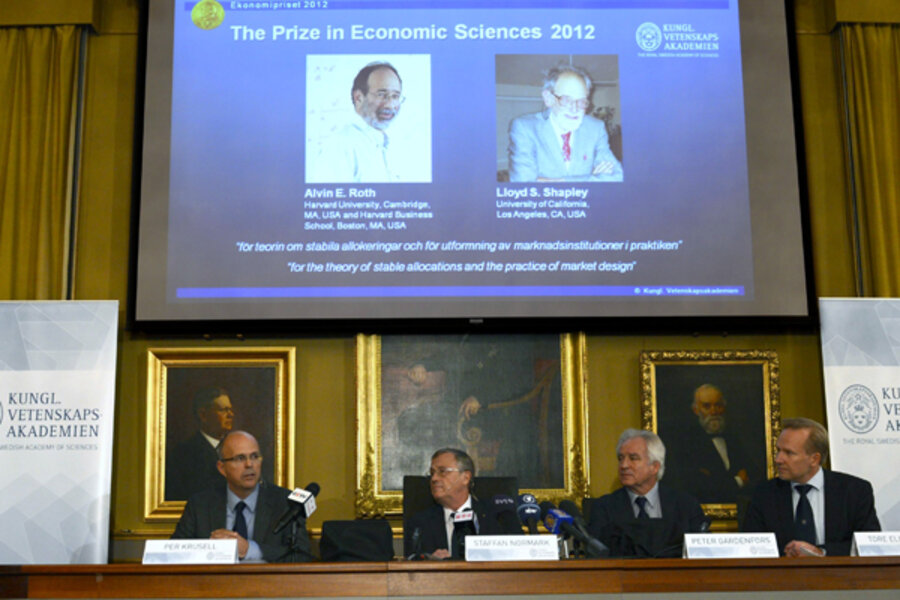Two Americans awarded Nobel Prize for economics
| Stockholm
Americans Alvin Roth and Lloyd Shapley were awarded the Nobel economics prize on Monday for research that helps explain the market processes at work when doctors are assigned to hospitals, students to schools and human organs for transplant to recipients.
The Royal Swedish Academy of Sciences cited the two economists for "the theory of stable allocations and the practice of market design."
Roth, 60, is a professor at Harvard University in Boston. Shapley, 89, is a professor emeritus at University of California Los Angeles.
"This year's prize concerns a central economic problem: how to match different agents as well as possible," the academy said.
Shapley made early theoretical inroads into the subject, using game theory to analyze different matching methods in the 1950s and '60s. Together with U.S. economist David Gale, he examined "pairwise matching," by looking at how 10 women and 10 men could be coupled up, while respecting their individual preferences.
Roth took it further by applying it to the market for U.S. doctors in the '90s.
"Even though these two researchers worked independently of one another, the combination of Shapley's basic theory and Roth's empirical investigations, experiments and practical design has generated a flourishing field of research and improved the performance of many markets," the academy said.
Roth said he was sleeping when he got the call from the prize committee in California, where he is a visiting professor at Stanford University.
"I'm sure that in class this morning my students will pay more attention," he told a news conference in Stockholm by phone.
Asked how he would celebrate, he said: "I haven't made any plans yet; coffee."
The Nobel Memorial Prize in Economic Sciences was the last of the 2012 Nobel awards to be announced.
It's not technically a Nobel Prize, because unlike the five other awards it wasn't established in the will of Alfred Nobel, a Swedish industrialist also known for inventing dynamite.
The economics prize was created by the Swedish central bank in Nobel's memory in 1968, and has been handed out with the other prizes ever since. Each award is worth 8 million Swedish kronor, or about $1.2 million.
Last year's economics prize went to U.S. economists Thomas Sargent and Christopher Sims for describing the cause-and-effect relationship between the economy and government policy.
The 2012 Nobel Prizes in medicine, physics chemistry and literature and the Nobel Peace Prize were announced last week. All awards will be handed out on Dec. 10, the anniversary of Nobel's death in 1896.





